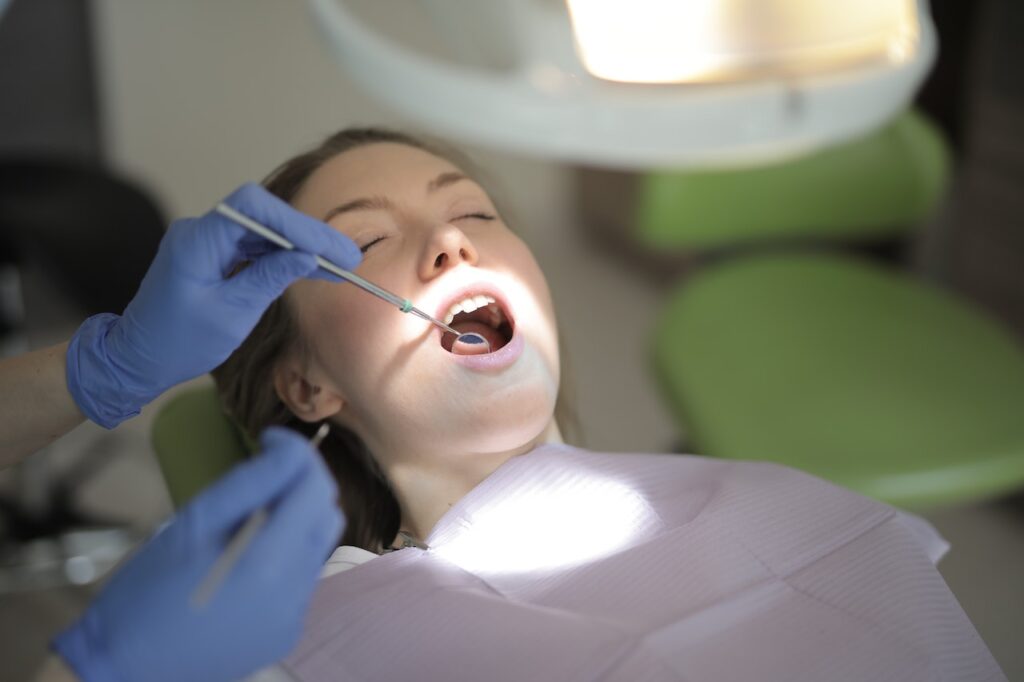Temporomandibular joint disorder (TMD) is a common dental concern affecting millions of people worldwide. Characterized by pain, discomfort, and limited functionality in the jaw joint and its surrounding muscles, TMD can have a significant impact on an individual’s quality of life, making daily tasks such as chewing, speaking, and even laughing both challenging and uncomfortable. In this comprehensive guide, we will explore the ins and outs of TMD, providing a better understanding of the symptoms, causes, and treatment options available, while highlighting how the experienced dental professionals at Chelmsford Dental Specialists Group can help alleviate your TMD symptoms and restore normalcy to your daily life.
While TMD is a prevalent oral health issue, it is frequently misunderstood and often goes undiagnosed. The temporomandibular joint (TMJ) connects your lower jaw to the temporal bone in your skull, allowing for the wide range of movement necessary for eating, speaking, and facial expressions. TMD arises when there are issues within the TMJ or the surrounding muscles, leading to chronic and often debilitating pain.
At Chelmsford Dental Specialists Group, we are committed to identifying, diagnosing, and providing effective treatment options for individuals suffering from TMD. Our comprehensive approach to dental care encompasses a full range of preventive, restorative, and rehabilitative services tailored to address the unique circumstances and needs of each patient.
In this guide, you will learn about TMD’s hallmarks, its underlying causes, and the available treatment options. Additionally, we will highlight the importance of seeking professional dental care in managing TMD effectively and ensuring your long-term oral health and overall well-being. Let’s dive in and unravel the complexities of TMD to better understand the critical role dental care plays in managing this often-debilitating condition.
Recognizing the Symptoms of TMD
Identifying TMD can be challenging due to the wide variety of symptoms that may be present. Some common signs that you may be suffering from TMD include:
- Pain or tenderness in the jaw joint, facial muscles, or around the ear
- Discomfort or difficulty while chewing, biting, or opening the mouth wide
- An abnormal or limited range of motion in the jaw
- An audible click, pop, or grating sound when opening and closing the mouth
- A feeling of the jaw being “stuck” or locked in position
- Swelling or inflammation on one or both sides of the face
- Headaches, earaches, or neck and shoulder pain
If you are experiencing any of the symptoms described above, it is essential to consult with a dental professional who can evaluate your condition and determine whether TMD is the cause of your discomfort.
The Causes of TMD
The exact cause of TMD is often difficult to pinpoint, as the condition may arise from a combination of factors. However, some common underlying causes of TMD include:
- Jaw Misalignment: Improper alignment of the jaw can place excessive stress on the temporomandibular joint, leading to the development of TMD.
- Teeth Grinding (Bruxism): Chronic grinding or clenching of the teeth can put excessive pressure on the jaw joint and surrounding muscles, contributing to TMD.
- Arthritis: Inflammatory conditions, such as osteoarthritis or rheumatoid arthritis, can affect the temporomandibular joint, causing pain and limited functionality.
- Trauma or Injury: Physical injury to the jaw, neck, or face can lead to TMD as a result of damage to the temporomandibular joint or surrounding muscles.
- Structural Abnormalities: Some patients have congenital or acquired abnormalities in the jaw joint’s structure, which can predispose them to TMD development.
- Stress: High levels of stress may lead to increased muscle tension and jaw clenching, aggravating existing TMD symptoms or contributing to the onset of the disorder.
Treatment Options for TMD
TMD treatment options vary based on the severity of the condition and the underlying cause. Your dental professional may recommend a combination of the following treatments to alleviate your TMD symptoms:
- Home Care: Simple self-care practices, such as applying ice or heat packs, eating soft foods, avoiding extreme jaw movements, and managing stress through relaxation techniques, can help provide short-term relief for mild TMD symptoms.
- Medication: Your dental professional may recommend over-the-counter pain relievers, prescription medications, or muscle relaxants to help alleviate TMD-related pain and inflammation.
- Physical Therapy: Exercises to stretch and strengthen the jaw muscles, as well as massage, ultrasound, or moist heat therapy, can help improve joint function and alleviate TMD symptoms.
- Occlusal Appliances: Custom-made oral devices such as splints or mouth guards can help reduce the pressure on the jaw joint, preventing clenching or grinding and supporting proper jaw alignment.
- Dental Treatment: In cases where misaligned teeth or an improper bite contribute to TMD, corrective dental treatments such as orthodontics, dental restorations, or tooth reshaping may be necessary.
- Injections: In some cases, corticosteroid or Botox injections may be administered to alleviate pain and muscle tension associated with TMD.
- Surgery: Although rare and typically reserved for severe cases, surgical procedures such as arthroscopy or open-joint surgery may be necessary to address structural abnormalities or damage within the temporomandibular joint.
Preventing TMD and Maintaining Jaw Health
While not all cases of TMD can be prevented, the following measures can help maintain your jaw’s health and reduce the risk of developing TMD:
- Maintain Good Oral Hygiene: Regular dental cleanings and check-ups can help ensure your teeth and jaw are healthy and well-aligned, reducing the risk of TMD.
- Address Teeth Grinding: If you grind your teeth, consult your dental professional about treatments to help prevent further damage to your jaw joint.
- Practice Proper Posture: Maintaining proper posture, especially when working at a desk or computer, can help reduce strain on the neck, shoulders, and jaw.
- Relaxation Techniques: Learning to manage stress through relaxation techniques such as deep breathing, meditation, or yoga can help minimize TMD symptoms caused by muscle tension and teeth clenching.
Conclusion:
TMD can significantly impact your quality of life, affecting essential functions such as eating, speaking, and even sleeping. At Chelmsford Dental Specialists Group, our team understands the complexities of TMD and is dedicated to providing personalized, comprehensive care to alleviate your symptoms and restore your oral health. If you suspect that you may be suffering from TMD or are experiencing any unexplained pain or discomfort in your jaw, we encourage you to schedule a consultation with our experienced dental professionals. Together, we can determine the most effective treatment plan to address your TMD and help you regain a comfortable, functional smile. For all your dental emergencies in Chelmsford, rely on the Chelmsford Dental Specialists Group to provide prompt and expert care.



